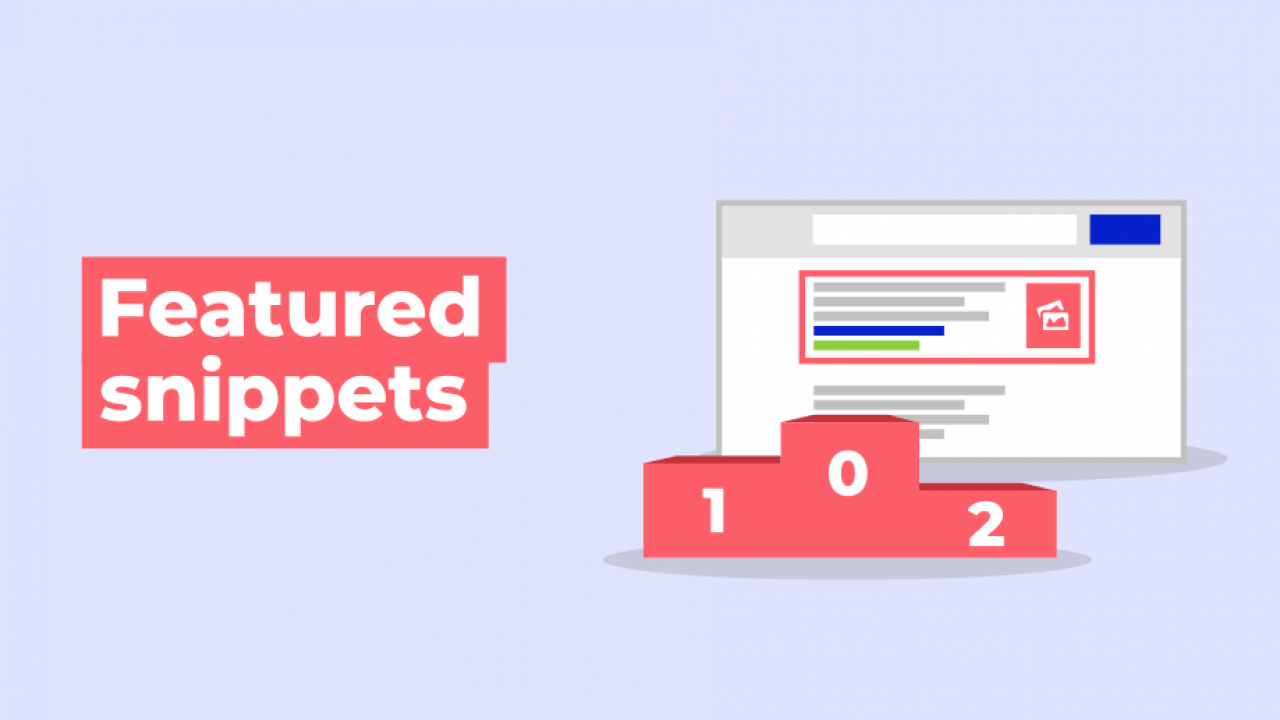Winning SEO’s 4 Featured Snippet Types

What Is a Featured Snippet?
In organic search, Google’s featured snippets occupy one of the most prominent places in the search engine results pages (SERPs). Also referred to as the “answer box,” the featured snippet is chosen by Google’s algorithms as they work to find the best-suited answer to fulfill a searcher’s query.
Google will take content from a site that would otherwise rank on page one, and provide searchers with an answer to their question and a link to that website directly in the SERP. Google’s goal with featured snippets is to answer the question within the search results, thereby potentially improving searcher customer experience as well as keeping searchers on Google longer.
The featured snippet most often appears at the top of the organic search results, beneath any ads, and is typically triggered by lower-volume, long-tail search queries. It is possible, though, for featured snippets to be found in the “People also ask” sections on Google or along with the knowledge graph information on the right side of the SERP.
While Google introduced featured snippets back in 2014, a lot has changed since then. For one, as of this writing, the answer box is the first search result of the 10 blue links displayed on page one of Google’s SERP. Up until 2020, if a business won the featured snippet, they would still be featured in one of the organic search results below as well. This is not the case today, as the featured snippet replaces that listing.
So, as a business, you’ll want to have content that answers the searcher’s question but also entices them to click through to your website for more information. In fact, a recent study featured in SparkToro found that nearly 65% of searches resulted in zero clicks, pointing to featured snippets as one possible reason for this phenomenon.
In this roundup of featured snippets, we’ll highlight the four types, the best ways to win the snippets, and why they are important for your business.
4 Types of Featured Snippets
Using the example of a new home buyer or someone interested in the housing market, we’ve compiled a few examples of each of the four types of featured snippets below.
- Paragraph: The most popular type of featured snippet, the paragraph snippet, is used to provide a brief description answering the searcher’s query. Most often, the text in a paragraph snippet is anywhere from 40 to 60 words and provides a concise definition or answer to questions.
In the example below, a potential home buyer would search “how much is the average cost of housing in the us” and be shown a result similar to this:

- List: Another type of featured snippet is the list format, in which answers are provided via a bulleted or numbered list. Lists can answer a “how-to” query in the form of steps, or result in ranking or listing items. Some examples of lists include DIY steps, recipes, “best of” lists, and featured lists — often in the form of steps or a bulleted list.
In the example below, a person interested in types of housing might search “what are the types of housing” and be shown a list featured snippet:

- Table: A table featured snippet presents information directly in the search results in a table format. Tables are excellent at showing data, pricing, rates, etc. If you want to secure a table featured snippet, be sure to mark up your content in the HTML source code using table tags. Google’s table featured snippets are excellent for seeing comparisons at a glance.
As an example, someone looking to compare home prices in the midwest might type in a phrase like “average u.s. home price 2022 midwest” and be shown a table featured snippet like the one below:

- Video: If Google decides that a video best answers a search query, the algorithm can pull a YouTube video or clip and use it as the featured snippet. To win a video featured snippet, optimize both the video itself and the description. See our previous blog, 7 Ways to Optimize YouTube for Better SEO Performance.
If someone is interested in a home renovation project, specifically a bathroom remodel, they may search for something along the lines of “how to renovate a bathroom.” In this case, a video featured snippet may be shown, as in the example below:

How To Win the Coveted Featured Snippet
Optimizing for the featured snippet includes, but is not limited to, keyword research, creating excellent content, and tagging the content with HTML tags.
- Keyword Research: Be sure to do your share of keyword research focusing on question-related search queries. Many of the paid SEO platforms like SEMrush and Ahrefs allow you to see which keywords are currently ranking for featured snippets, as well as low-competition keywords that have the potential to trigger a rich snippet.
- Create Compelling Content: Write content that concisely addresses the keywords in the first couple of sentences and includes supporting content that dives deeper into the topic. Use best practices for SEO, optimizing headings for the keywords that may generate featured snippets. Make sure the text varies in sentence length, is well-formatted using lists, includes original images with proper image alt attributes, and is easy to understand.
- Use Basic HTML Tags: Have your developer use basic HTML tags so Google can easily scan your page and know what’s it about. Structured data is also important to add to your page, improving your appearance on the SERP and helping to give you a better chance of winning a featured snippet.
Benefits of Featured Snippets
If you haven’t realized the importance of featured snippets, here’s what they can do for you. The main benefits of winning featured snippets include:
- Holding the top organic position in Google;
- Pushing competing websites lower in the SERP;
- Boosting brand awareness;
- Increasing click-through rate;
- Driving organic traffic to your website.
If your brand is appearing in many featured snippets, it can send a signal to searchers that you are a leader in your industry. This is especially true on mobile devices, where the featured snippet is what the user will primarily see in response to a query due to the smaller size of the screen. Now, it’s more important than ever to have well-optimized content that has the potential to win the featured snippet in order to take up that prime real estate in organic search results.
___
by Maureen Lepke
source: jumpfly.com

